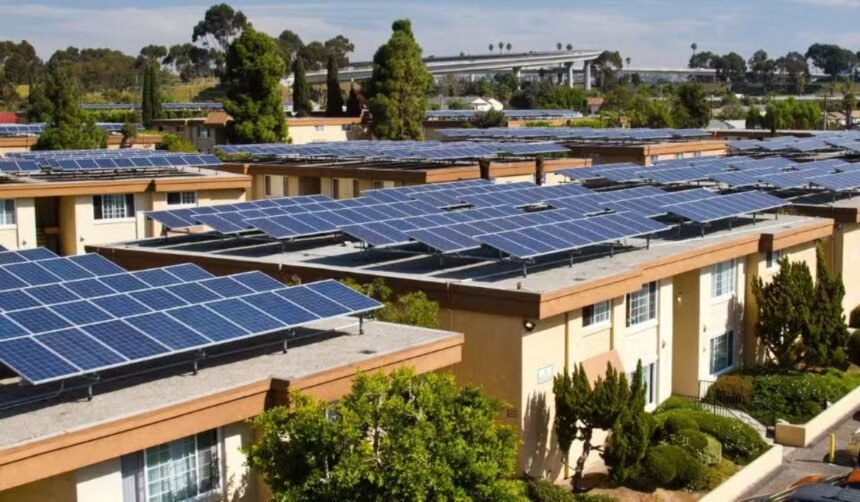In a modest Multan home, the ceiling fan sputters to a halt—another bijli ka katkhara. Amna, a seamstress, counts her dwindling rupees, her Rs18,000 electricity bill mocking her family’s budget. Outside, her kids squint over textbooks by candlelight, dreams dimmed by Pakistan’s endless energy crisis. Power outages plague cities and villages alike, while tariffs soar and circular debt, now a staggering Rs2.6 trillion, chokes the economy. The Shehbaz Sharif-led PML-N government touts reforms, but why are we still sitting in the dark, paying more for less? The awam deserve power, not promises.
The energy sector is a festering wound. In 2024, Pakistan’s grid delivered 43,775 MW of capacity, yet outages stretch hours—four in Lahore, eight in rural Sindh. Why? Mismanagement, plain and simple. Independent power producers (IPPs), locked into “take-or-pay” contracts, drain billions even when their plants idle. These deals, inked decades ago, guarantee dollar-indexed returns, bloating tariffs as the rupee slides. In 2023-24, capacity payments to IPPs gobbled Rs800 billion, nearly 2% of GDP, while 59% of power came from costly fossil fuels. Meanwhile, renewables—solar, wind—languish at 7%, despite Pakistan’s sun-soaked plains and windy coasts. Businesses shutter, exports slump, and Amna’s needle pauses as the lights flicker off again.
The PML-N’s handling is a masterclass in inertia. Renegotiating IPP contracts, promised in 2024, crawls along—only five deals scrapped, 18 still in limbo. The government fears spooking investors, yet lenders like the IFC warn that coercive tactics already dent confidence. On renewables, pledges abound—60% clean energy by 2030—but action lags. A 600 MW solar project in Muzaffargarh stalls, and wind farms in Sindh produce a measly 1,845 MW against a 50,000 MW potential. The energy ministry, mired in red tape, offers excuses, not electricity. Circular debt keeps ballooning, up from Rs2.2 trillion in 2022, as unpaid bills and subsidies pile up. It’s a vicious cycle: high tariffs spark theft, theft widens losses, losses hike tariffs. The awam pay the price—literally.
This isn’t just bad policy; it’s a moral betrayal. Power is no luxury—it’s the backbone of dignity, work, and hope. When Amna’s kids study by wax, or a Karachi factory halts for want of juice, Pakistan’s future dims. It’s wrong to let IPPs milk billions while 40 million lack grid access. It’s unjust to lean on coal and LNG, poisoning air and wallets, when solar could yield 40,000 MW. The PML-N, with its vaunted CPEC legacy, should know energy drives progress. Yet, their focus—more loans, more hikes—burdens the poor to shield the privileged. The awam didn’t sign those IPP deals; why must they foot the bill?
Here’s a question to fire up X (share it!): “Why pay Rs20,000 for bijli that’s off half the day?” Answers won’t light bulbs—action will. First, renegotiate IPP contracts, but smartly. Shift to “take-and-pay” models, paying only for power used, as Ghana did. Offer incentives—say, contract extensions—for lower tariffs, not ultimatums. Audit IPPs for overbilling, as suspected in 2024, to claw back excess profits without legal wars. This could save Rs300 billion yearly, easing tariffs without crashing the sector.
Second, bet big on renewables—it’s a moral must. Pakistan’s sun and wind are free; LNG and coal aren’t. Subsidize solar farms—Rs10 billion could kickstart 1,000 MW in Balochistan. Slash tariffs on panel imports, copying India’s playbook. Fund 10,000 village mini-grids, delivering 500 MW to the unconnected, as Nepal’s micro-hydel shows. Renewables cut costs—solar’s at 4 cents per unit versus LNG’s 12—and clean air saves lives. By 2030, 30% renewable power could halve import bills, freeing cash for schools, not smoke.
Third, demand accountability from the energy ministry. Sack officials stalling solar bids or CPEC grids. Launch a public “PowerTrack” dashboard, showing debt payments, IPP deals, and outage stats—transparency builds trust. Probe Rs100 billion in 2023-24 losses, naming culprits, not scapegoats. A clean ministry delivers juice, not jargon.
This isn’t about despair—it’s about defiance. Pakistan’s weathered worse—1971’s split, 2008’s blackouts—and risen stronger. Imagine a nation where Amna’s machine hums, her kids read under LEDs, and factories roar. The PML-N can spark this, but only if they stop fielding catches for IPPs and coal. Renegotiate smartly, go green boldly, govern cleanly. The awam don’t want excuses—they want light.
We’ve got the sun, the wind, the will. Will the government bring the wattage or fumble the over? That’s what The News’s readers—seamstresses, clerks, students, traders—need answered. Not in plans, but in power they can switch on.


